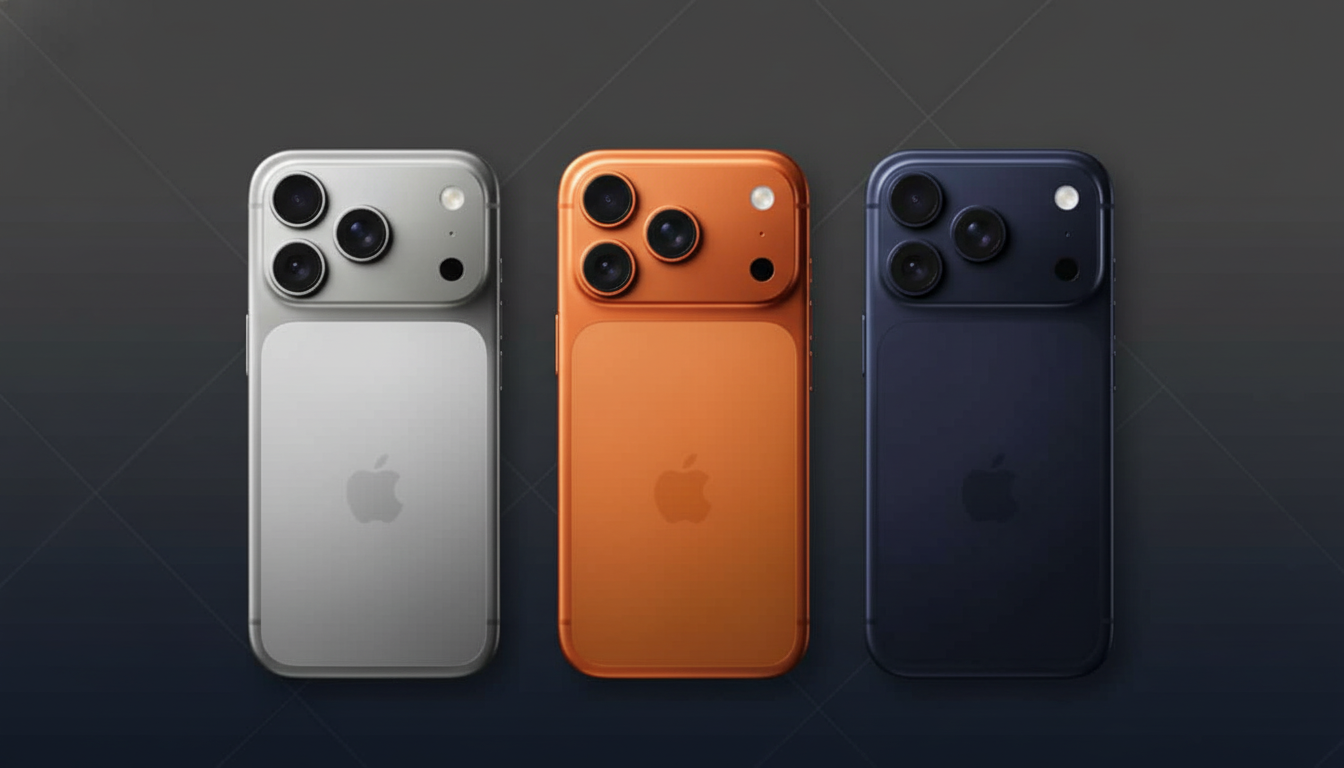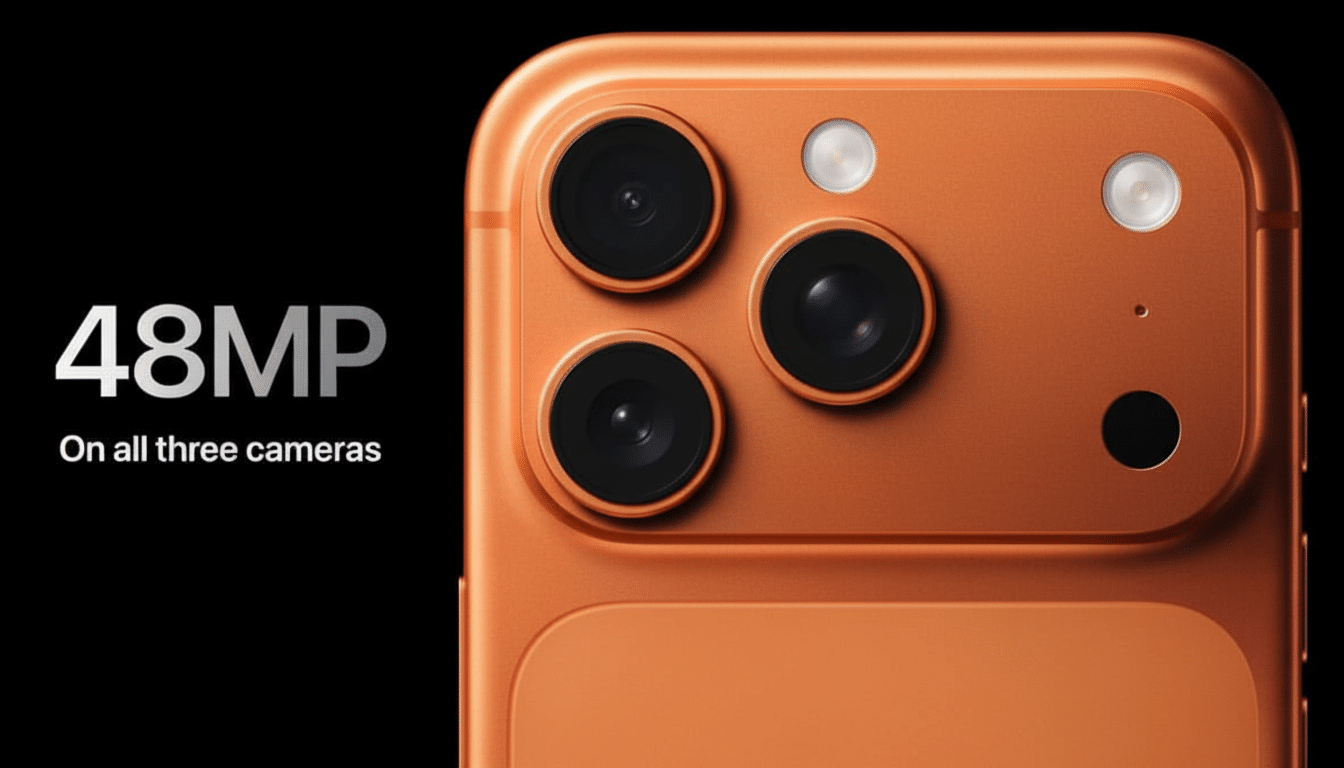There’s a family of four tiers for Apple’s new iPhone 17: iPhone 17, iPhone 17 Air, iPhone 17 Pro and iPhone 17 Pro Max. iPhone 17 price starts at$799, iPhone 17 Air is priced at $999, iPhone 17 Pro cost $1,099 and iPhone 17 Pro Max is available at $1,199. Those price points paved the way for a line up ranging from everyday use, to ultra‑portable design, to power‑user performance, and all the way up to the largest display with the most advanced camera system.
Prices and lineup positioning
The $799 regular iPhone 17 is the main pick: the best entry point to the latest Apple generation without the premium tax. The $999 iPhone 17 Air is for that sunny middle lane, a buyer who wants a thinner and lighter body but not yet the full “Pro.” The $1,099 iPhone 17 Pro is aimed at creators and gamers who demand top performance and pro‑level tools, while the $1,199 Pro Max is for people who want the biggest screen and Apple’s most capable camera array.

Design and ergonomics
The naming tells a story. “Air,” of course, typically means thinner and lighter throughout Apple’s line-up, and that’s likely the trade-off here: portability and comfort in your hand, presumably at least a little bit of saving on a battery, relative to what would fit in thicker siblings. The regular iPhone 17 will still be the durability‑first option, the Pro models also being the usual territory to push premium materials and more robust thermal design to hold performance in heavier workloads such as 4K video capture or sustained gaming sessions.
Performance and battery expectations
Apple tends to separate the Pro set from the rest with its latest top‑end silicon, a more hefty GPU option, and then have the non‑Pro group with a closely related chip but with performance tuned to be more power-efficient. That separation matters from workflows involving on‑device AI features, multi‑stream video recording and advanced photo processing. Historically, battery life scales with device size, so your Pro Max will typically last the longest with mixed usage, followed by the Pro and, then, standard model, with the super‑slim Air you is a lighter-weight design that prioritizes portability more than it does tank‑like endurance.
For durability, recent guidance from Apple suggests that modern iPhones will be good for about 1,000 full charge cycles before the battery falls to 80% of its original health, a major improvement over the previous 500-cycle prognostication.
That’s a substantial improvement for owners who keep a phone for several years.
Cameras and creator features
Apple has always saved its most advanced technologies for the Pro lineup — for iPhone 13 Pro and iPhone 13 Pro Max, that means the most advanced camera system ever on iPhone, with our largest sensor ever and our fastest chip for the best iPhone video quality yet — as well as the new Super Retina XDR display with ProMotion with an adaptive refresh rate up to 120Hz, making the touch experience faster and more responsive, the most advanced 5G experience with more 5G bands for the broadest coverage, and longer battery life, in both iPhone 13 Pro and iPhone 13 Pro Max.
Look for the Pro Max to keep the longest optical reach, the most crucial advantage for sports, wildlife and travel photography. The iPhone 17 and iPhone 17 Air features should be comfort food for point‑and‑shoot junkies with more basic dual‑camera systems and the same software‑driven advances in computational photography.
On the video side of things, professional codecs and higher bit‑rate options tend to go hand‑in‑hand with Pro devices, historically. But if you have long‑form 4K footage, are recording multi‑cam, or will be grading footage, then the Pro models are your safer bet—particularly if you upgrade to faster storage tiers.
Display differences that matter
High refresh rate displays (Apple’s ProMotion) have been a Pro trademark in recent generations, contributing not only to smoother scrolling, but also games, and for that matter, stylus‑adjacent levels of precision when it came to UI interactions. If Apple maintains that split, it’s a sensible, every-day advantage on the Pro and Pro Max. Bigger displays are also what propel the Pro Max’s advantage for productivity with split‑view multitasking and for binging on video, but the Air’s allure is comfort — less wrist fatigue during prolonged reading sessions and lighter pockets.

Storage, connectivity, and lifespan
Storage tiers might be deceptively essential. Otherwise, if you’re recording 4K60 content or just keeping years worth of family photos on the device, you’ll be much happier starting at 256GB or more. USB‑C throughout simplifies transfers and charging; on Pro models, faster wired throughput has historically meant speedier offloads to SSDs. “eSIM‑first” activation gains global ground — simplifying activation and travel plans on digital profiles. 1. Software: When it comes to software support, iPhones get new versions of iOS for at least 5 years — and sometimes even longer, which matters a lot for resale value and long‑term security.
That resale value can significantly reduce your total cost of ownership. Industry observers such as Counterpoint Research have historically displayed iPhones maintaining double and triple the resale value of many premium-branded Androids over a typical upgrade cycle, helping explain why Apple’s premium iPhone category routinely generates more than two-thirds of the global premium smartphone segment’s revenues.
Which iPhone 17 should you get?
If you want Apple’s latest experience for the least amount of money, opt for the iPhone 17. It aims for reliability, good out-of-the-pocket camera quality and strong everyday battery life for the everyday user.”
Choose iPhone 17 Air if you want a lighter, thinner phone and don’t need every pro feature. It’s the comfort champ for commuters, bookworms and the weight-conscious among us in the digital age.
Level up to iPhone 17 Pro if you play games or edit photos and videos on your phone, if you want access to the complete set of creator‑class tools and the most seamless display experience. It’s the performance sweet spot for the majority of power users.
Go iPhone 17 Pro Max if you care the absolute most about camera reach and the biggest possible canvas and longest possible battery life. For travel photographers (and, for that matter, mobile filmmakers), it’s the most capable pocket studio Apple has offered yet, this cycle.
Bottom line: that lineup is looking sharper than ever. Begin with the size and weight at which you are certain not to resist carrying the thing everywhere, and then figure out what kind of camera could attain your photographic dreams while also satisfying your personal definition of compact. If you’re on the fence, keep in mind that storage and display smoothness are the two upgrades that most buyers continue to appreciate long after the unboxing buzz has worn off.

